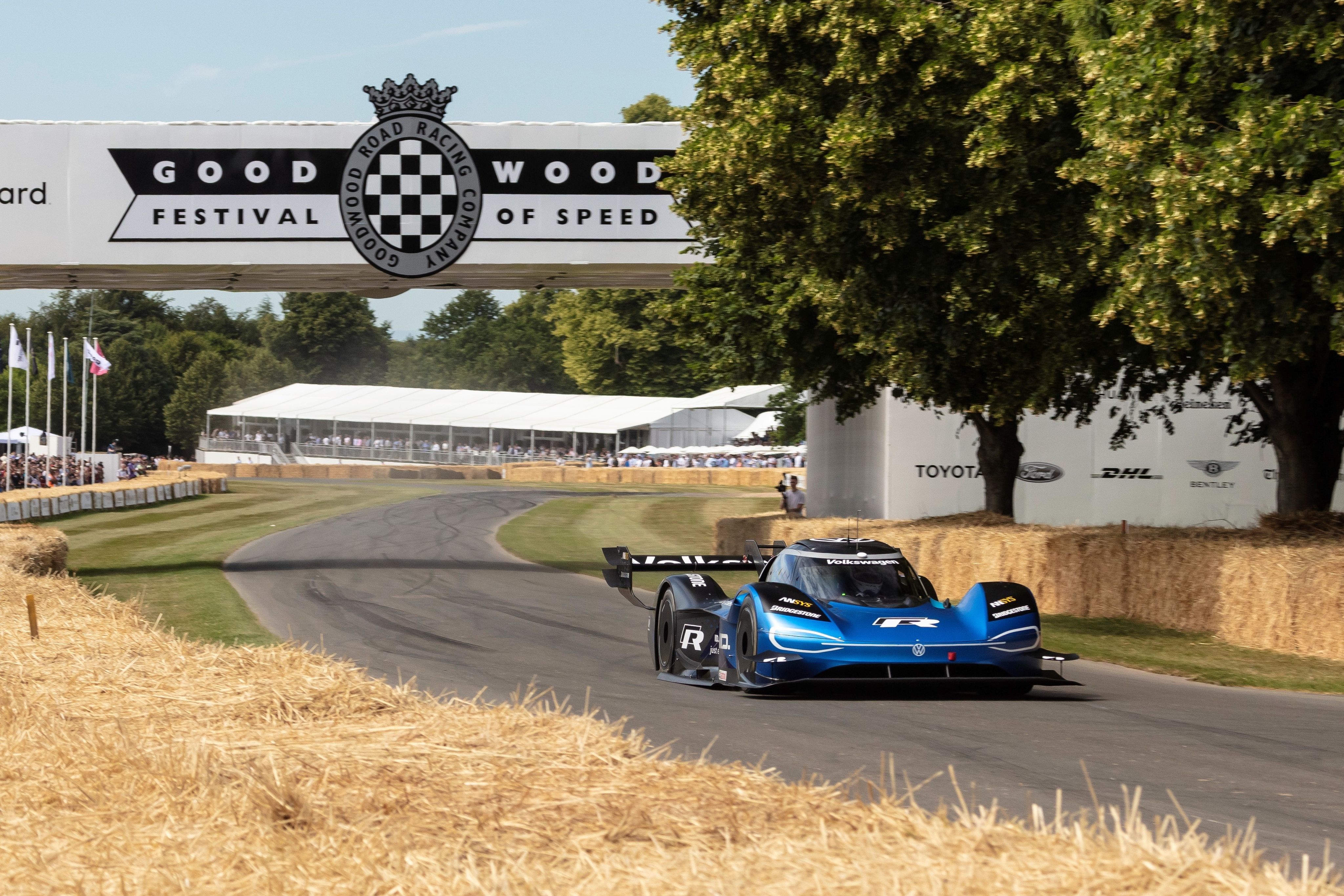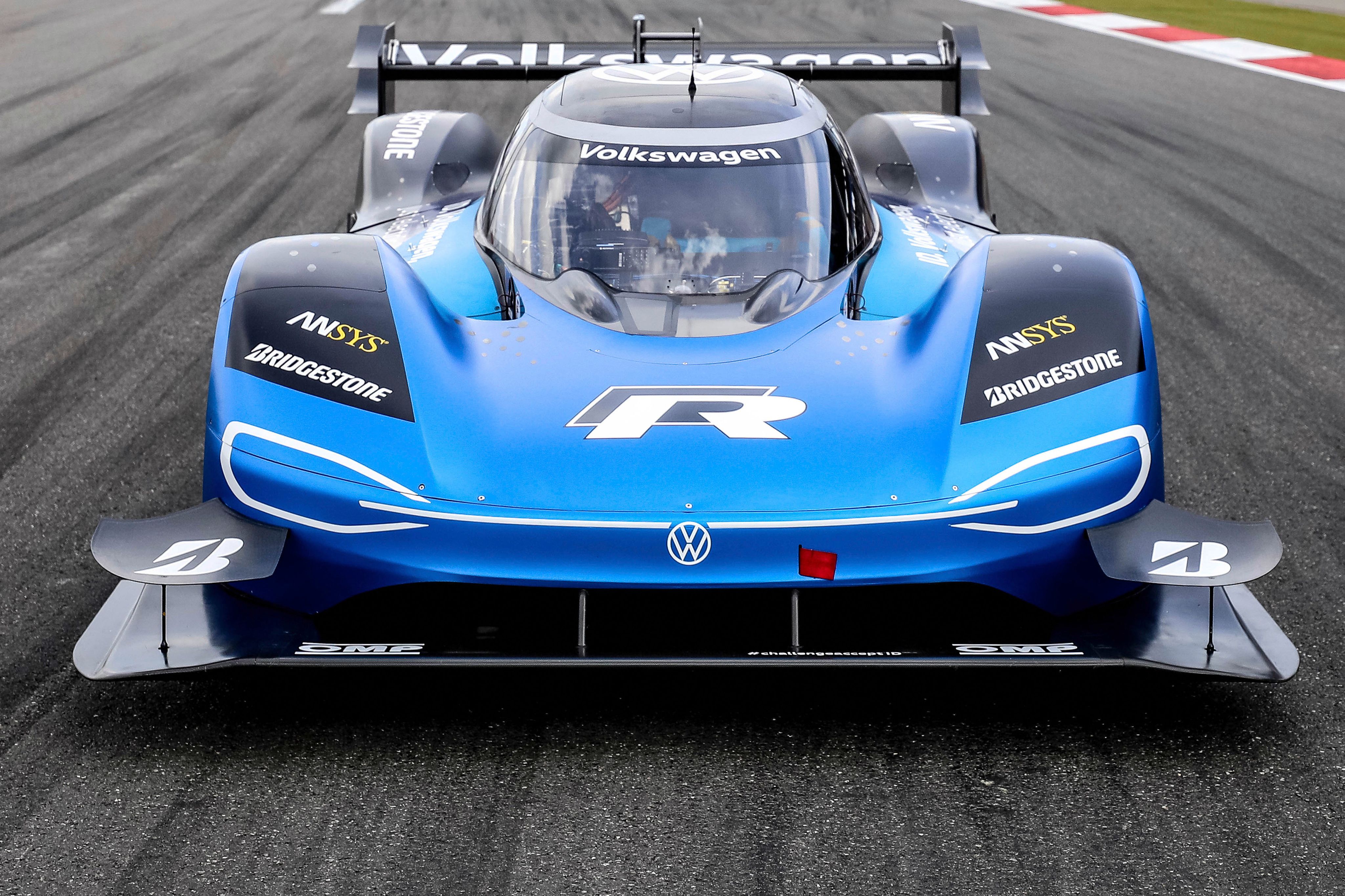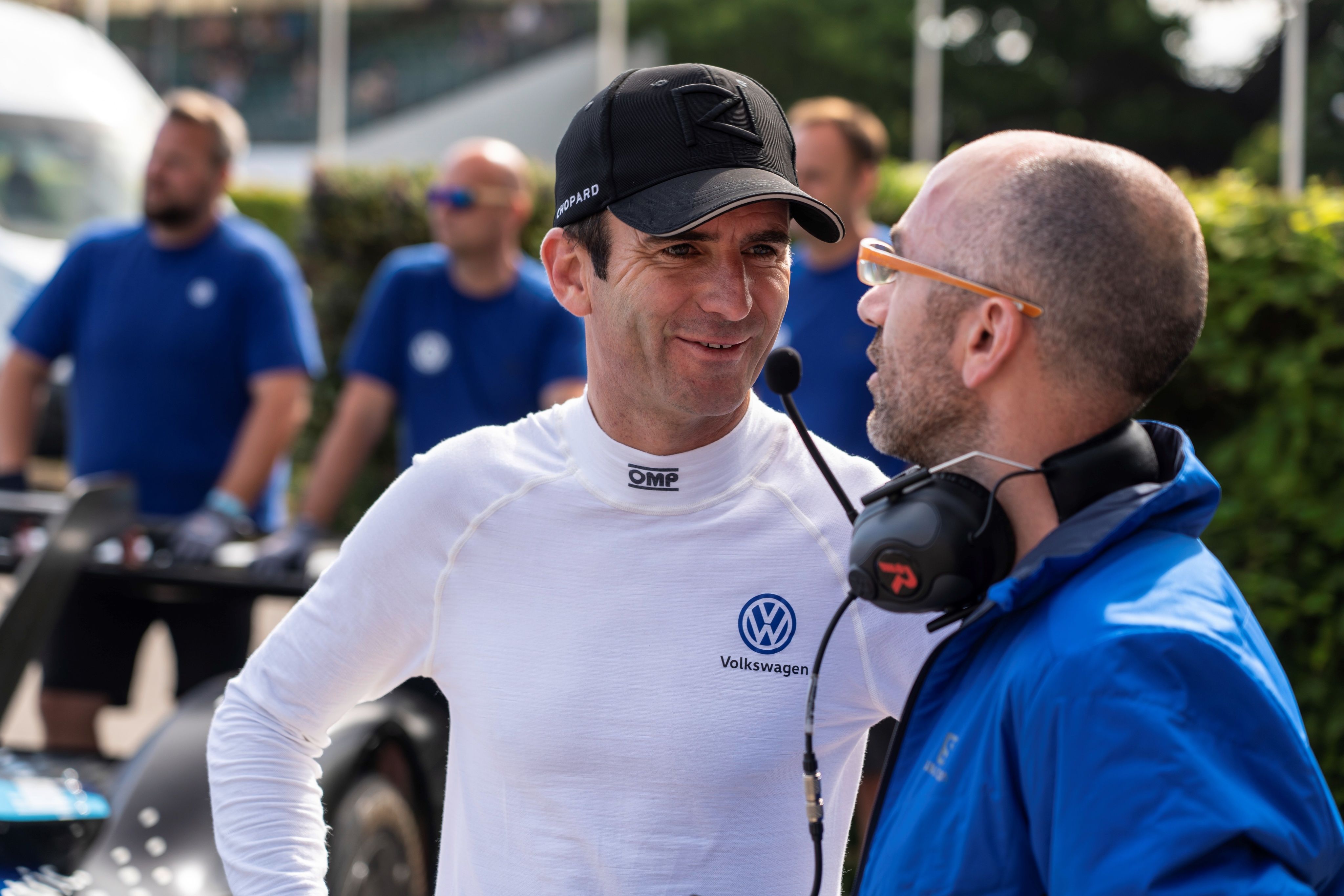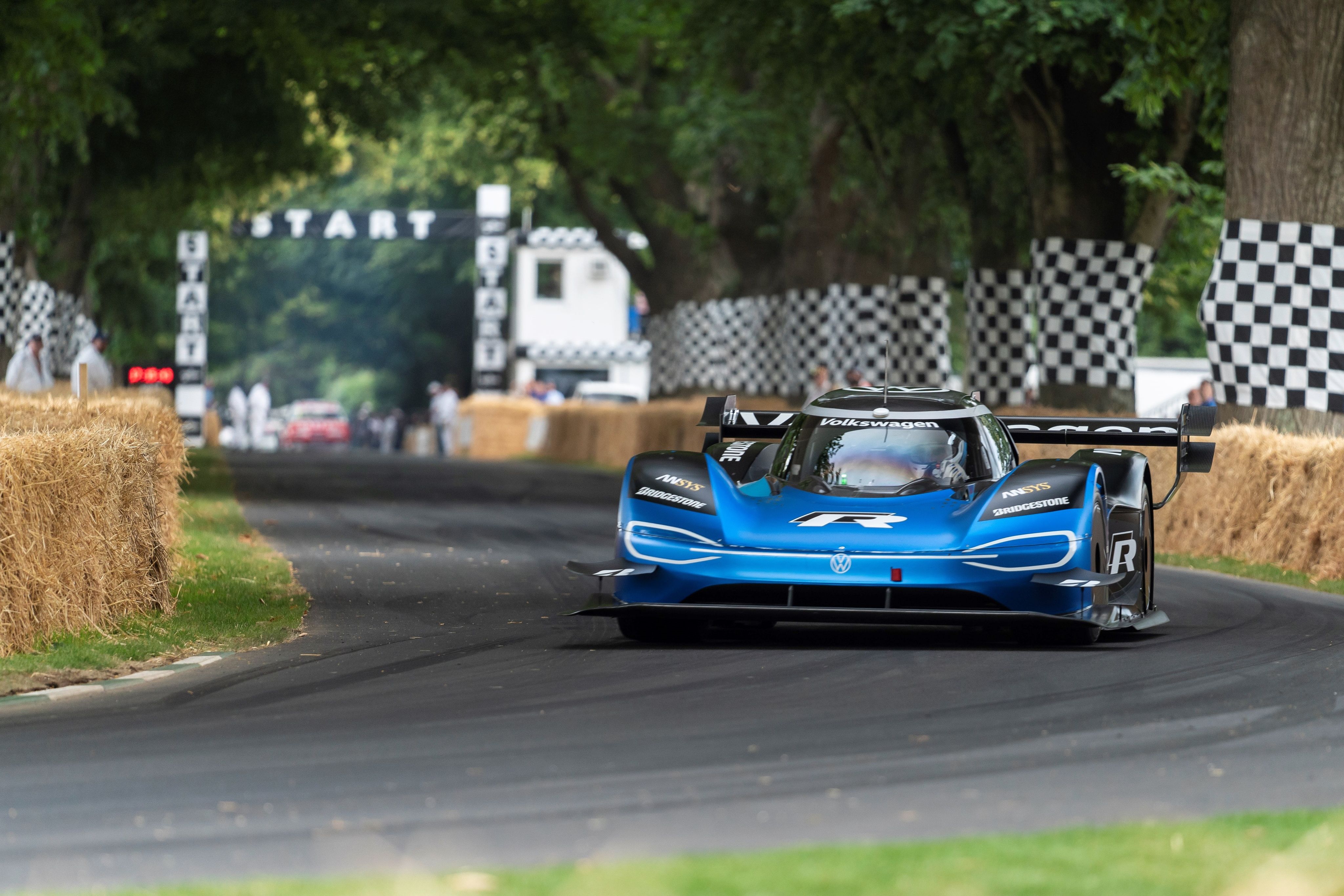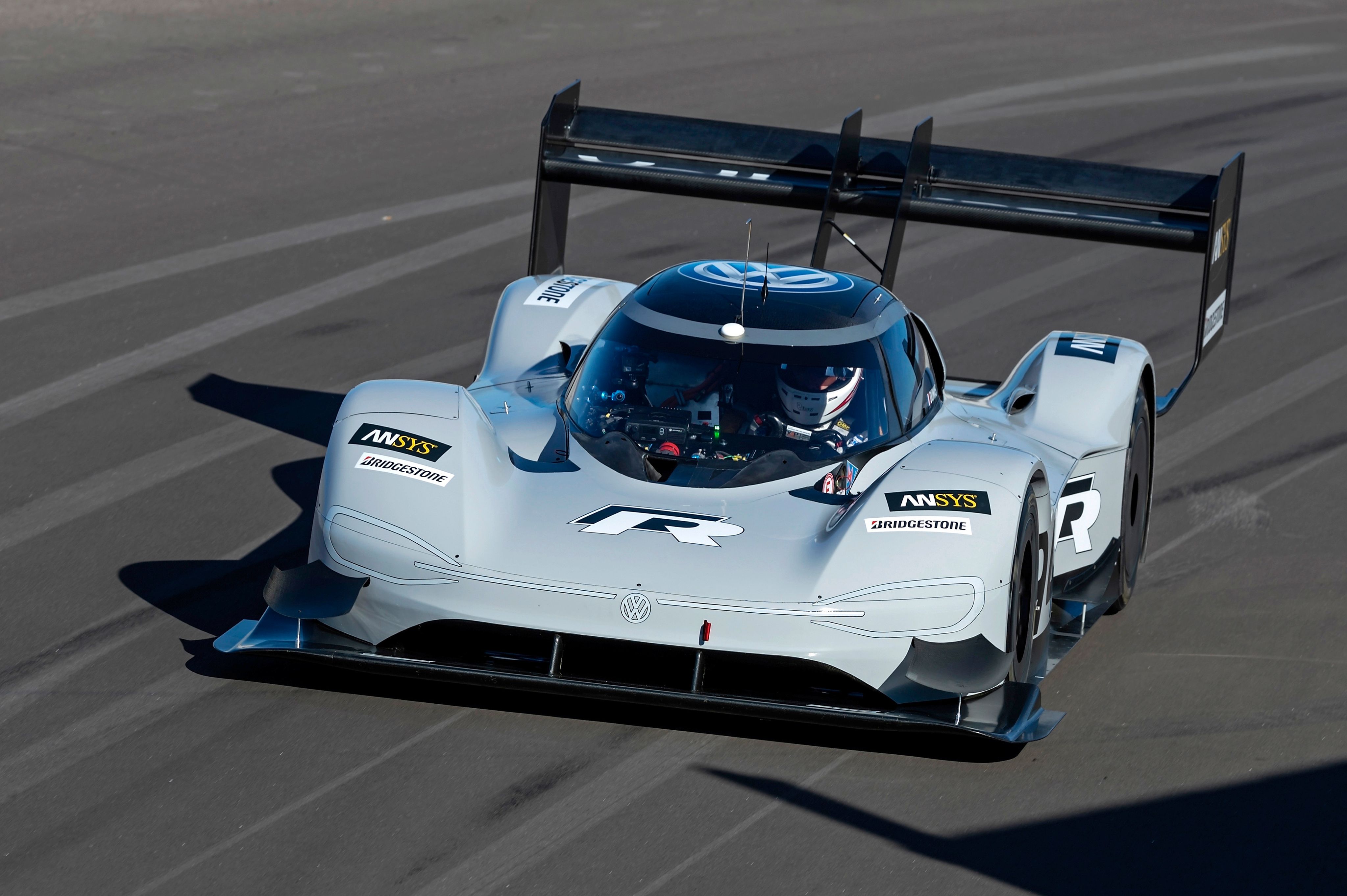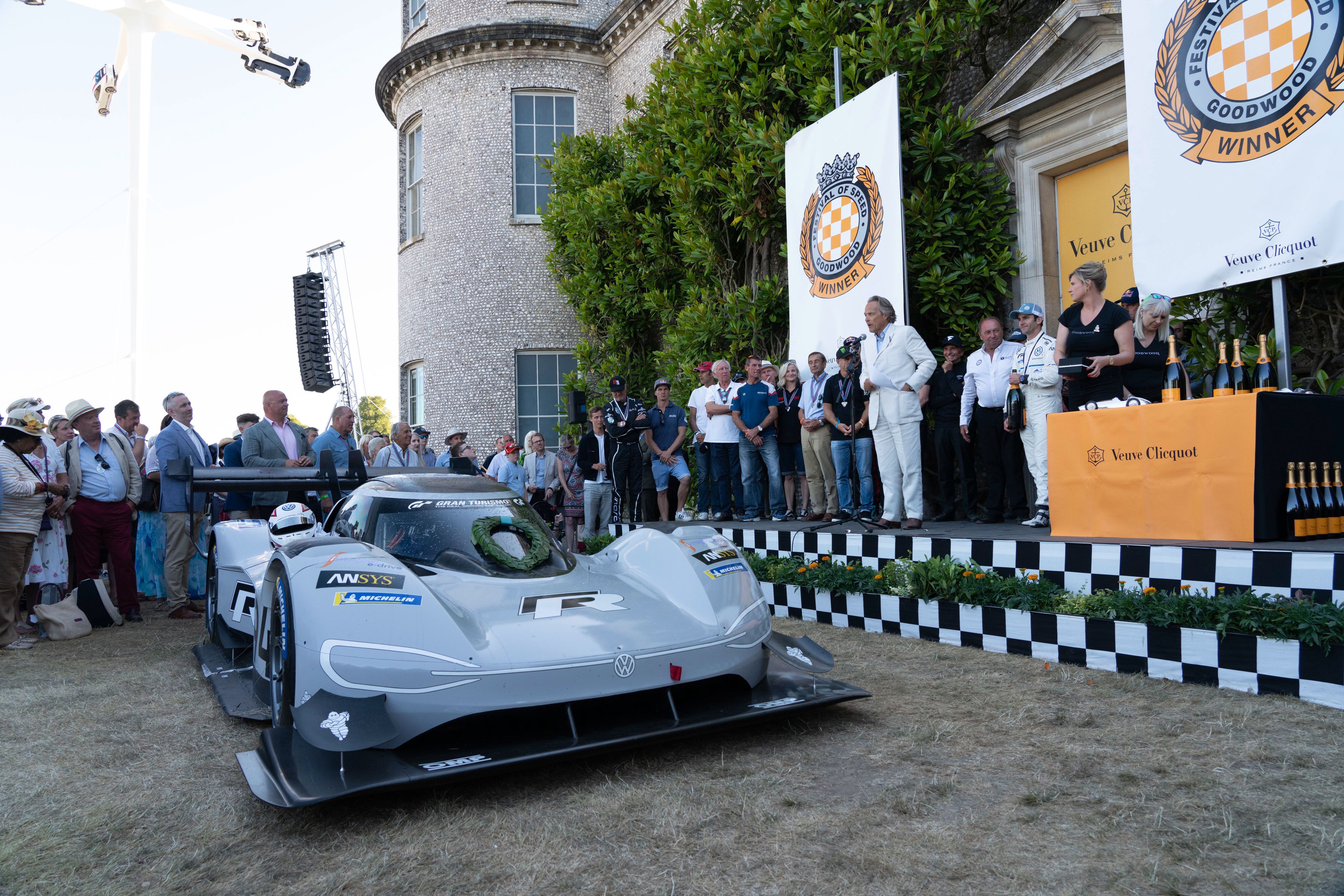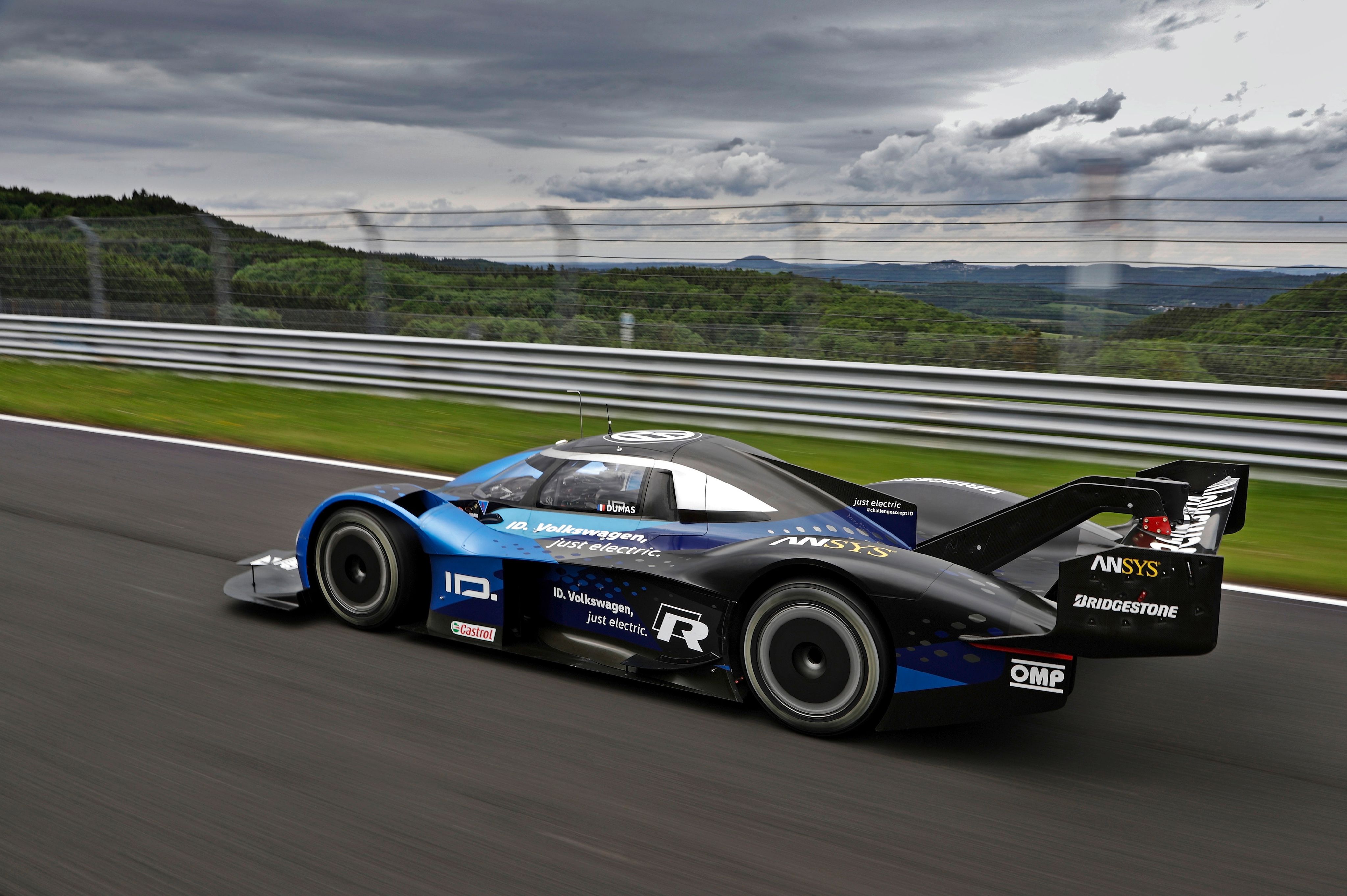Volkswagen continues to impress us with its I.D. R race car, the moving technology lab of the giant from Wolfsburg, one that's been created to break records and, in the process, prove to the world that Volkswagen's EVs will knock everybody out of the park. Last weekend, during the 2019 Goodwood Festival of Speed Romain Dumas driving a revised version of the I.D. R did just that, making every other car that has ever run on Lord March's Hillclimb course seem pedestrian as he smashed the all-time record set 20 years ago in a full-blown Formula 1 car.
There are still many that will never bring themselves to even accept electric cars as the way forward, let alone try and like them. While this is true, it's also true that cars like Volkswagen's I.D. R are surely turning heads among even the most hardcore fans of the old-school internal combustion engine. This car has, in the space of little over 12 months, smashed the all-time record at the Pikes Peak International Hillclimb and then did the same around the Nurburgring-Nordschleife with a time fast enough to make it the second fastest car around that track ever. That it also broke the EV record at Goodwood last year seems almost moot given what Dumas did this year with the car.
The old record was set back in 1999 by Nick Heidfeld
The Goodwood Festival of Speed, an event created by Lord March back in 1993, is as much about parading some of the world's most incredible road cars and race cars as is about driving as fast as possible down the 1.16-mile-long Hillclimb course that stretches across the Lord's property in West Sussex. Each year, dozens of cars tackle the course, some slowly and some quick and, for the second year in a row, the fastest car is one that did not harm the environment at all during its runs - the Volkswagen I.D. R.
In 2018, Dumas arrived at Goodwood off the footsteps of dominating the Pikes Peak International Hillclimb. The Frenchman, who'd previously won the event three different times, completed the 12.42-mile 'Race To The Clouds' in just 7:57.148, a whopping 15 seconds quicker than Sebastien Loeb had done in 2013 aboard a modified Peugeot 2018 T16.
Dumas put it to good use and completed the run on Sunday - 0.8 seconds slower than the best he managed that weekend - in 43.86 seconds. It was about half a second quicker than the next fastest car, the NIO EP9 driven by Peter Dumbreck. It was also 2.6 seconds quicker than the fastest gas-guzzling car, the amazing Judd-powered BMW M3 E36 that was once owned by the late, great Georg Plasa.
After conquering one of the world's shortest hill climb courses and one of the longest, Volkswagen Motorsport turned its head towards the world's longest permanent road course, the Nurburgring-Nordschleife that wraps around the Eifel Mountains in the western part of Germany. To meet this new challenge, the aerodynamic kit of the I.D. R was comprehensively modified as some downforce had to be shaved off since the Nordschleife also features some long straight bits.
With an average speed of 128.6 mph, Dumas clocked in a 6:05.336, almost a full minute quicker than the NIO EP9 that managed a 7:05.120 and almost six seconds quicker than Stefan Bellof's record run from 1983. That mesmerizing performance had been the benchmark until Porsche's Timo Bernhard blew it out of the water in 2018 aboard the Porsche 919 Evo.
It was this modified I.D. R that Volkswagen brought to the 2019 Goodwood Festival of Speed although the Germans actually went and played a bit with the power delivery and had the batteries operate in 'Sprint' mode, offering all of their juice for a much shorter and much more intense run. On Friday, during the first timed runs, Dumas reeled in a 41.18-second run, already enough to beat the 20-year-old record set by Nick Heidfeld behind the wheel of a McLaren-Mercedes MP4/13 from 1998, a 41.6. The Frenchman was obviously helped by both the more urgent power delivery and the car's new-for-the-Nurburgring F1-style drag reduction system.
After achieving the desired result so early in the weekend, Sven Smeets, Volkswagen Motorsport's director, declared himself relieved. "We didn't expect to do it so early, but I also don't wish it had happened on the last run because if something goes wrong?" He then added that "Now we can work tomorrow afternoon and Sunday afternoon a little bit for a different feeling. Still, apparently, there are some things we can improve to try and get under this 41 . We have to give ourselves a new target."
Dumas, who said last year that the biggest problem regarding the surface of the Goodwood Hillclimb course is that it gets dirtied up due to the other cars that run on it, said on Friday that "it was a little bit stressful with the weather for the rest of the weekend, so we tried to push today, but tomorrow I hope we can go a little bit quicker." He also admitted that he'd like to break into the 40s and, the next day, he actually did much more than that.
This is where the debate begins.
Also, if you check this list of the fastest five cars to have ever been officially timed on the course, you'll see that the I.D. R's run from 2018 is actually the fourth fastest time while the one Dumas did this year is the second quickest. Which is the third? 2002 British Hillclimb Champion Graeme Wight, Jr.'s Gould GR51 that ran a 42.90.
You may be wondering by now how come nobody beat Heidfeld's 1999 run in two decades. Well, for starters, it's especially bonkers - as you'll see for yourself if you watch (or re-watch) the footage of a then-22-year-old Nick Heidfeld muscling Mika Hakkinen's championship-winning car through the very narrow and twisty bits of a course. That Adrian Newey-penned McLaren is, simply put, dancing although the road surface is perfectly dry.
Following Heidfeld's eye-opening run in 1999, the organizers thought better about allowing F1 cars to run at full chat during the Shootout. A ban was later imposed although some daring drivers did ignore it and went at it as hard as they could. Point in case, Allan McNish in the 2002 Toyota TF102. He reeled in a 41.56 that would've been enough to beat Heidfeld's time, but it's not an officially recognized time. Since then, the organizers have stopped timing current F1 cars altogether, and all that the drivers do is rev the engines a bit, do some burnouts and some donuts, and then go home. It's all in the name of safety, of course, although I can't help but feel a bit sad about it all.
Then again, don't you just love it that a howling V-10-engined F1 car is, for another 12 months at least, still the fastest car to have ever been (officially) timed at Goodwood? It says nothing about the progress that's been made in the past 20 years, of course, but it's just cool that there's a car that can still make you shiver as it flashes by you at the top of the standings. Not to say that the I.D. R's rocketship precision and bullet-like acceleration isn't amazing but, with the soundtrack that it posses, it'll never be as dramatic. Let's hope for clear skies next year and a return of the Volkswagen Motorsport squad then!
Further reading
Read our full review on the 2018 Volkswagen I.D. R Pikes Peak.
Volkswagen I.D. R Pikes Peak Breaks Electric Record at Goodwood FOS
Romain Dumas and the Volkswagen I.D. R Pikes Peak Racer Shatter the Pikes Peak Time Attack Record

